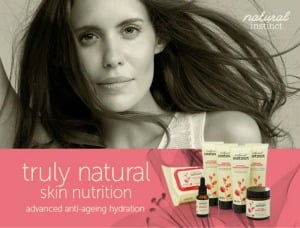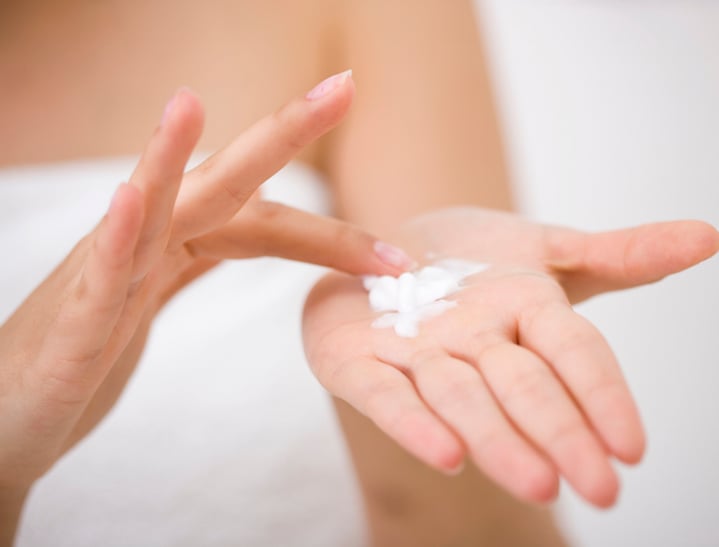

By now you’ve heard of the dangers of BPA in your plastic water bottles and food containers, but what about the other sneaky toxic and carcinogenic chemicals lurking in your bathroom cupboard and makeup bag?
When you’re looking for effective skincare products, it’s easy to gloss over potentially toxic ingredients when you practically need a science degree to decode those long ingredient lists. It doesn’t help that lots of brands appear to be natural but aren’t.
What you put on your skin can be more harmful than what you put in your body. Here are five potentially dodgy chemicals you probably aren’t aware you’re using every day – and how to avoid them.
1. PEGs
Propylene Glycols (PEGs) help to form a soluble lotion, assist in moisturising the skin and increase the penetration of other skincare ingredients. Which sounds harmless enough, but PEGs are often contaminated with a whole host of nasty chemicals. In other words, those nasties are hitching a ride on the bullet train being delivered straight into your skin cells.
Lead, iron, nickel, cadmium and arsenic are all impurities found in various PEG compounds. What’s especially alarming is Ethylene oxide, used in World War I nerve gas, has been found in PEG-4, PEG-7, PEG4-dilaurate, and PEG 100.
Most skincare brands today aim to remove these toxins before they end up on your face or in your hair, but do you really want to take that gamble?
How to avoid them: some skincare and personal care products appear to be PEG-free but can be listed under another name. Look out for ingredients like Ceterath-20, Polyethylene Gylcols, and PEGs followed by a number sequence like PEG7, PEG4, PEG2.


Top Comments
Chemical free hand sanitizer. Ha ha ha. Chemicals are in everything, they are what make us and the world up. Water is a chemical.
Zinc is toxic, but you need it to be healthy. Copper too. There is also some belief that toxins like cadmium and arsenic are also essential for our survival. And these are but a few.
In reality, everything is toxic at some level, even oxygen...and see how long you get by without that in your everyday life.
You cannot eliminate toxins from your life. It is, quite literally, impossible. This article is irresponsible and feeds the anti-science, anti-fluoride, anti-vax mentality.
The level of intelligence displayed in your argument
is proof positive that the cumulative effects of the neurotoxic fluoride added
to our drinking water is already taking affect.
“Fluoride is NOT AN ESSENTIAL ELEMENT for human growth and development, and for most organisms in the environment.
No obvious advantage appears in favour of water fluoridation as compared with topical application of fluoride. [page 4]
Scientific Committee on Health and Environmental Risks
http://ec.europa.eu/health/...
“Chronic long-term exposure to high levels of fluoride leads to fluorosis, manifested by skeletal fluorosis and damage to internal organs, including kidneys, liver, parathyroid glands, and brain.
Excess fluoride can also cause DNA damage, trigger apoptosis, and change cell
cycle.”
http://www.ncbi.nlm.nih.gov...
Exactly how much arsenic are you advocating to ingest and would you trust the government to administer that dosage?
I have to agree with you in the way that its the quantity that makes things a toxin, not the product its self. Too much water can kill you too. We have to be wary of levels of toxins as we can never eliminate everything from our lives. The levels are which keep us safe and healthy.